Jianxin Hu
InterNet: Unsupervised Cross-modal Homography Estimation Based on Interleaved Modality Transfer and Self-supervised Homography Prediction
Sep 26, 2024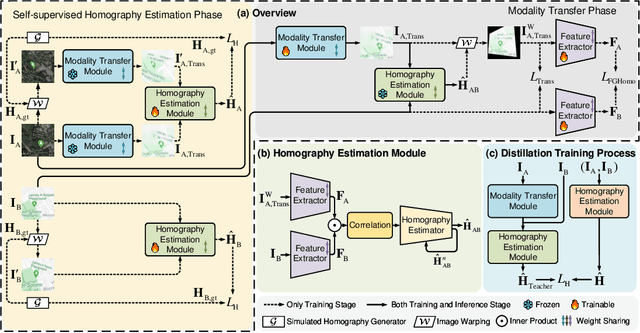
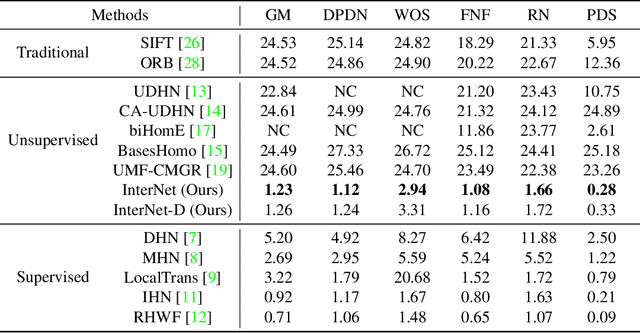
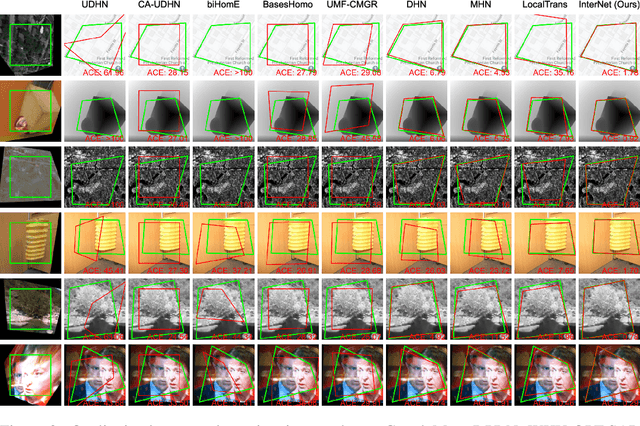

Abstract:We propose a novel unsupervised cross-modal homography estimation framework, based on interleaved modality transfer and self-supervised homography prediction, named InterNet. InterNet integrates modality transfer and self-supervised homography estimation, introducing an innovative interleaved optimization framework to alternately promote both components. The modality transfer gradually narrows the modality gaps, facilitating the self-supervised homography estimation to fully leverage the synthetic intra-modal data. The self-supervised homography estimation progressively achieves reliable predictions, thereby providing robust cross-modal supervision for the modality transfer. To further boost the estimation accuracy, we also formulate a fine-grained homography feature loss to improve the connection between two components. Furthermore, we employ a simple yet effective distillation training technique to reduce model parameters and improve cross-domain generalization ability while maintaining comparable performance. Experiments reveal that InterNet achieves the state-of-the-art (SOTA) performance among unsupervised methods, and even outperforms many supervised methods such as MHN and LocalTrans.
Iterative Deep Homography Estimation
Mar 30, 2022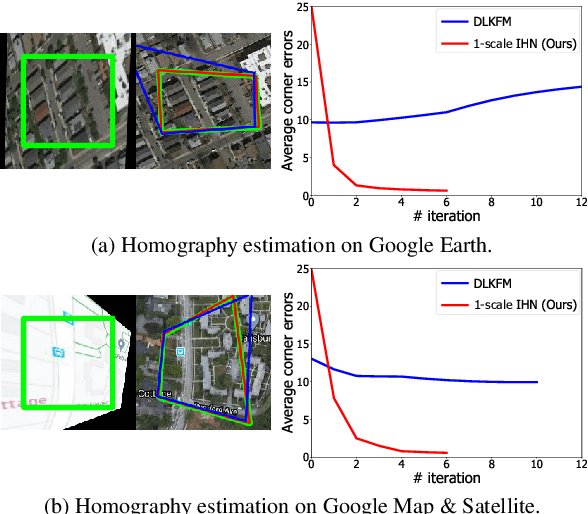

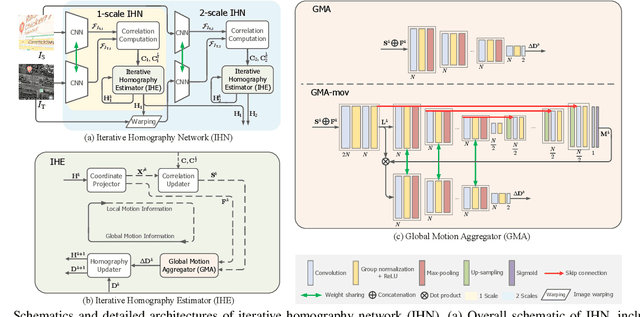
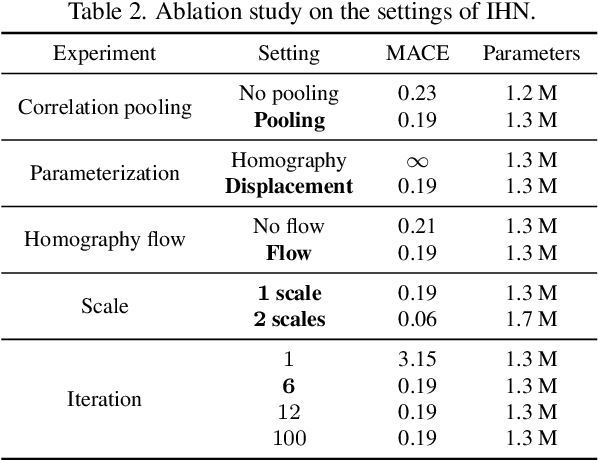
Abstract:We propose Iterative Homography Network, namely IHN, a new deep homography estimation architecture. Different from previous works that achieve iterative refinement by network cascading or untrainable IC-LK iterator, the iterator of IHN has tied weights and is completely trainable. IHN achieves state-of-the-art accuracy on several datasets including challenging scenes. We propose 2 versions of IHN: (1) IHN for static scenes, (2) IHN-mov for dynamic scenes with moving objects. Both versions can be arranged in 1-scale for efficiency or 2-scale for accuracy. We show that the basic 1-scale IHN already outperforms most of the existing methods. On a variety of datasets, the 2-scale IHN outperforms all competitors by a large gap. We introduce IHN-mov by producing an inlier mask to further improve the estimation accuracy of moving-objects scenes. We experimentally show that the iterative framework of IHN can achieve 95% error reduction while considerably saving network parameters. When processing sequential image pairs, IHN can achieve 32.7 fps, which is about 8x the speed of IC-LK iterator. Source code is available at https://github.com/imdumpl78/IHN.
 Add to Chrome
Add to Chrome Add to Firefox
Add to Firefox Add to Edge
Add to Edge